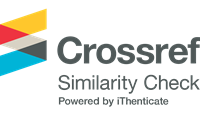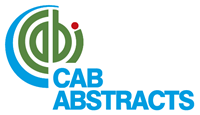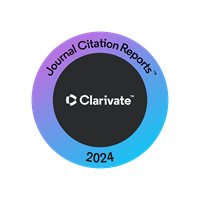Aspectos biológicos de <em>Metriona elatior</em> Klug (Coleoptera, Chrysomelidae, Cassidinae) sobre plantas de <em>Solanum viarum</em> Dunal (Solanaceae)
Resumo
Aspectos biológicos de Metriona elatior (Klug) (Coleoptera, Chrysomelidae, Cassidinae) alimentada com folhas de Solanum viarum Dunal (Solanaceae) foram estudados em condições de laboratório. Os insetos utilizados nos ensaios foram provenientes de uma criação-estoque mantida em laboratório, alimentando-se de plantas de Solanum viarum. A partir desta população realizaram-se testes observando os seguintes parâmetros: número médio de massas de ovos por dia; número médio de ovos por massa; número médio de larvas emergidas por massa de ovos; período de incubação e viabilidade de ovos; duração e viabilidade de cada ínstar e da fase pré-pupal e pupal; duração e viabilidade do período de ovo a adulto; longevidade de adultos; e consumo foliar por larvas e adultos. Os principais resultados obtidos foram: número médio de massas de ovos foi de 16,23 ± 0,60; ovos por massa 5,90 ± 1,08, larvas emergidas 5,12 ± 0,15, o período incubação 7,85 ± 0,72 dias, o período larval 3,76 ± 0,14; 3,56 ± 0,17, 3,88 ± 0,24, 5,69 ± 0,36, 6,46 ± 0,22 dias do primeiro ao quinto instar; respectivamente; período pré-pupal 2,54 ± 0,14, período pupal 9,31 ± 0,13 dias; longevidade de adultos 115,82 ± 11,57dias. O quinto instar e fase de adulto foram aqueles nos quais o inseto apresentou maior potencial para o consumo foliarDownloads
DECLARAÇÃO DE ORIGINALIDADE E DIREITOS AUTORAIS
Declaro que o presente artigo é original, não tendo sido submetido à publicação em qualquer outro periódico nacional ou internacional, quer seja em parte ou em sua totalidade.
Os direitos autorais pertencem exclusivamente aos autores. Os direitos de licenciamento utilizados pelo periódico é a licença Creative Commons Attribution 4.0 (CC BY 4.0): são permitidos o compartilhamento (cópia e distribuição do material em qualqer meio ou formato) e adaptação (remix, transformação e criação de material a partir do conteúdo assim licenciado para quaisquer fins, inclusive comerciais.
Recomenda-se a leitura desse link para maiores informações sobre o tema: fornecimento de créditos e referências de forma correta, entre outros detalhes cruciais para uso adequado do material licenciado.





















































